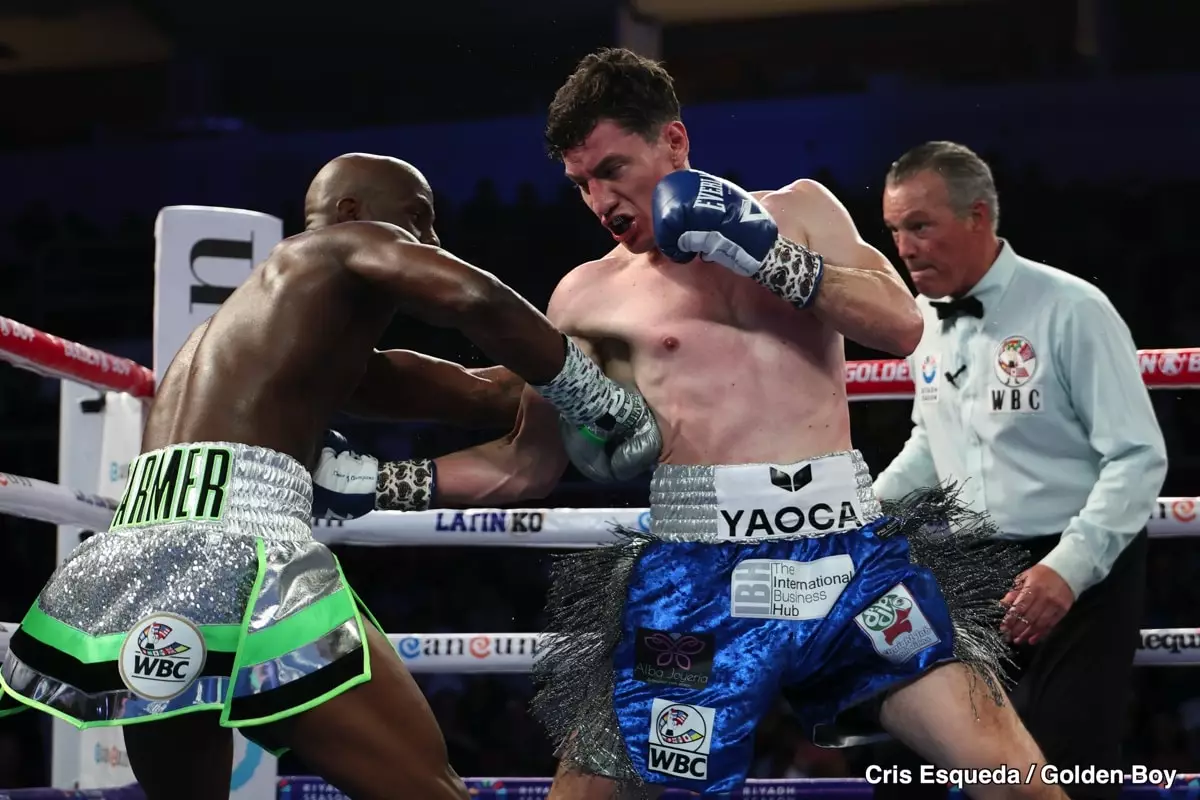In the vibrant arena of the Poliforum Benito Juárez in Cancún, fans anticipated a thrilling rematch between Tevin Farmer and the undefeated WBC interim lightweight champion, William Zepeda. As the bell rang, the atmosphere crackled with expectation. However, what transpired in the ring was a far cry from what the audience had hoped for—a tactical struggle overshadowed by Farmer’s overwhelming reliance on clinching, ultimately leading to his defeat by majority decision. Instead of showcasing his skills and backup plan, Farmer’s hesitation to engage in meaningful exchanges might be the defining moment of this bout.
A Battle of Tactics
From the outset of the fight, Farmer’s approach was clear; he intended to smother Zepeda’s offense. Yet, rather than effectively countering Zepeda’s speed and power with punches, Farmer seemed intent on wrapping his arms around him, prioritizing his defensive strategy over an offensive one. This approach may have allowed him to survive several early rounds, yet it did little to capture the judges’ favor or excite the crowd. Instead of focusing on combinations that could have turned the tide in his favor, Farmer consistently chose to cancel out Zepeda’s flow by holding him, which not only frustrated his opponent but also drained the bout of any compelling rhythm.
While clinching can be employed as a legitimate strategy—especially against a more aggressive opponent—there’s a fine line between tactical holding and excessive grappling. In Farmer’s case, it tips dangerously close to the latter. Critics could argue this style reflects poorly on his understanding of the sport’s essence—and it raises serious questions about his ability to adapt under pressure.
The Turning Point
Remarkably, it wasn’t until the championship rounds that Farmer finally permitted his hands to move rather than relying on his tight grip. From round nine onwards, he displayed flashes of his potential, letting punches fly and pushing Zepeda back. The twelfth round was especially dramatic; Farmer appeared to have knocked down Zepeda, only for the referee to miss what could have been a critical turning point. This late surge not only showcased Farmer’s capabilities but also illuminated just how much more he could have accomplished had he chosen a more active approach earlier in the fight.
However, it was in those crucial moments when Zepeda seemed vulnerable that Farmer faltered to capitalize fully. Instead of going for the finish, he appeared hesitant, perhaps weighed down by the cumulative fatigue from his clinching tactics. Ultimately, despite delivering sporadic brilliance, the fight remained mired in opportunities lost.
Referee’s Role and the Illusion of Fair Play
A noteworthy aspect of this fight was the ineffectiveness of the referee to rein in Farmer’s excessive clinching. Referees hold an important responsibility in policing the fight’s flow while ensuring that both fighters can engage in a fair contest. By not penalizing Farmer for his repeated holding, the referee essentially allowed a significant portion of the match to be dictated by Farmer’s defensive maneuvering. This oversight from the officials might not solely fall on Farmer’s shoulders. It raises critical discussions about the need for stricter enforcement of rules to preserve the sport’s integrity.
The Aftermath and Moving Forward
After the bout, Farmer’s post-fight comments provided a glimpse into his mindset. He expressed feelings of being cheated, maintaining that his efforts had gone unnoticed by the judges. Yet, it feels disingenuous to examine his performance solely through the lens of exterior factors; rather, accountability for the defeat lies within.
At this point, Zepeda stands at a crossroads. Clinging to a rivalry with a fighter who appears content to employ the same, uninspired tactics feels futile. Farmer’s future directions should veer towards a potential matchup with promising prospects like Andy Cruz, a fight that would allow him to reassess his boxing strategies and tactics.
While Tevin Farmer may have traveled to cancún with dreams of reclaiming titles, his refusal to engage until it was too late left him adrift in a sea of missed opportunities—a reminder that in boxing, passivity can be a fighter’s worst enemy.

